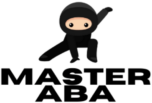The Competing Behavior Pathway: The Secret to Choosing Effective Interventions for your BIP
In order to choose the most effective function-based interventions, it’s critical to consider environmental and cultural variables that influence the appropriateness of interventions. Failing to do this results in poor outcomes due to low treatment fidelity. Once these variables are identified, the BCBA can then select appropriate strategies, which may range from environmental modifications to skill-building activities, to be included in a comprehensive intervention plan. The Competing Behavior Pathway is one of. the best tools to help you develop an effective plan.

